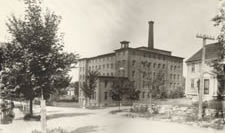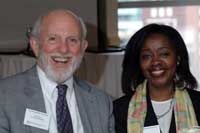Fri 5 Mar, 2010
Exposing the role of New England in slavery
Comments (4) Filed under: History| Tags: Concord, Constance Perry, Dain Perry, Historical amnesia, Massachusetts, New England, Slavery, The North, Traces of the Trade |
 One of our toughest challenges in presenting Traces of the Trade is to help audiences acknowledge the often-hidden complicity in slavery, not merely of our slave-trading family, but of all of New England (and, indeed, the entire nation).
One of our toughest challenges in presenting Traces of the Trade is to help audiences acknowledge the often-hidden complicity in slavery, not merely of our slave-trading family, but of all of New England (and, indeed, the entire nation).
Tonight, I’m attending a screening and discussion of the documentary in Concord, Massachusetts, hosted by the Drinking Gourd Project and featuring Dain and Constance Perry, from the film, and Jayne Gordon, director of education and public programs at the Massachusetts Historical Society.
See if you can spot anything problematic in the press release for the event:
The Drinking Gourd Project will present a screening and discussion of Traces of the Trade: A Story from the Deep North. … A discussion with DeWolfe family members will follow the film.
Historian Jayne Gordon will link the film to local history – discussing the life stories and struggle for freedom of early African residents of Concord, as well as the town’s leadership in the Abolitionist movement.
That’s right: they’re planning to discuss a film about the hidden complicity of New England in slavery, and about the difficulty many white people have in acknowledging that history, by talking about how their own New England town featured free blacks and abolitionists.
